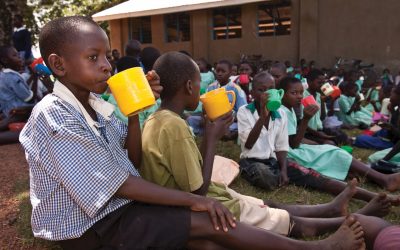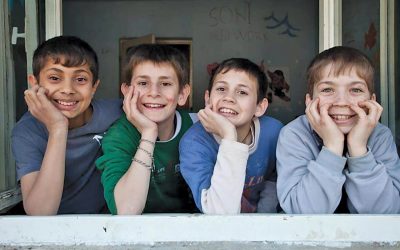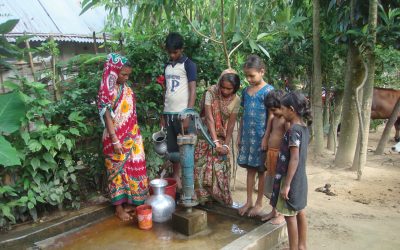Drylands occupy over 40% of the world’s land surface and of that, over 70% is in what is considered to be the under developed countries. This situation purely by scheme of nature, leaves whole communities struggling to survive through the seasons. One organisation is making great strides to counteract drought and famine hit areas of countries, especially in Africa, and that is Excellent Development.
It is certainly noted for their work creating Sand Dams but the organisation also works with communities where the Sand Dams are built to encourage better use of the irrigated land and ensure the water systems behind the dams reach areas where it is most needed.
I spoke with Simon Maddrell, the executive director of Excellent Development, to find out more about the organization, how Rotary has helped and where and how we could assist moving forward. Mark told me that the organisation, “supports communities in dryland areas to create the best solution in terms of volume and cost to obtain water.”
Mark then went on to tell me about projects they have worked on recently such as a water tank for a school which was funded by contributions from Rotary. It is important that schools have water and therefore sanitation, so lessons can run properly.
A supply of water gives you two precious things, water and time.”
Another project which seemed quite a simple solution was to divert water with rock catchments into small wells and tanks. Mark said: “A supply of water gives you two precious things; water and time. It allows young girls to invest in their education and farmers to find the time to raise crops in dryland. Quite often in the drylands there is a need to walk between 3 to 5 hours per day, sometimes more, to collect water.”
It is one thing to irrigate and provide easy access to water but another to ensure that this precious commodity is used correctly.
As we discussed this Mark told me: “An area the size of Belgium is given over to desert every year and Sand Dams are trying to reverse the trend with people using the valuable resources given by a dam so they are put to best use.
For instance: we encourage communities to set up tree nurseries and vegetable plots to create an income so they avoid spending on food but sell it instead. We also aid the setting up of demonstration plots and provide improved varieties of seeds to enable them to set up seedbanks leading to self-sustainability. It is important they learn better from their peers and farmers as a group learn from each other.”
All of this sounded great and as I always do, I asked how Rotarians are helping with these projects. Mark went on to tell me: “because of the cost of the Sand Dams they are usually funded by The Rotary Foundation Global Grants. We and our working partners have been the recipient of two Global Grants with one in progress and we are indebted and grateful to Rotary.”
“One grant funded five dams with the other funding three dams and two self-help groups, giving them access to safe water and an investment in farming. The Global Grant in progress will help fund another five dams. Some clubs have made direct donations to enable us to build five dams. The contributions have come from Rotary Clubs in the United Kingdom and Ireland. Over 100 clubs have helped us with our work.”
Simon went on to say: “I am humbled that so many Rotarians are helping us along a rewarding journey.”
Whichever way these figures are viewed they are impressive, since Rotary has invested almost £500,000 in the programme and the partnership is working effectively.
Excellent Development’s work has been centred in South East Kenya but they are now looking at the Northern Range Lands of Kenya and also a new project in Marwar, Rajasthan, India; spreading their work and transforming people’s lives.
Their work is best summed up by someone whose life has been transformed. Peter Mwanza from the Munyuni self-help group in Kenya said: “We have really befitted from our Sand Dams. We now have easy access to water. In the past we would spend almost half a day collecting water but now we spend that time farming. Water is no longer a problem and we are not the way we used to be.”


























































